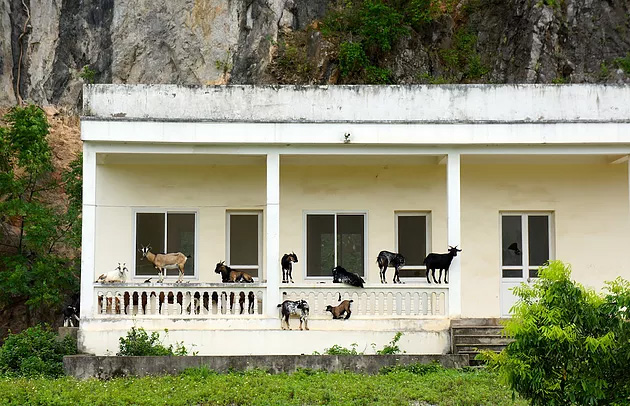There’s a condition that exists for all of us – where we feel like we have all the answers, we are in control, where we’re supremely confident, where the work feels easy.
I’m talking about our ‘comfort zone’ and it is at once the most difficult place to reach, the worst place you can be, and the hardest place to get out of.
Most of us strive for some level of equilibrium in our lives – we work for order and predictability – we’re constantly seeking out the comfort zone because of its steadiness. But what happens when the targets change or the playing field is rearranged?
We can become so fixated on reaching that space of calm and contentment that when it becomes elusive we feel defeated, frustrated, overwhelmed and exhausted.
What if we stopped believing in a comfort zone? What if we realized comfort is a myth – that there will be no end to our struggles or our triumphs? What if we embraced our discomfort, even searched it out for its hidden value – challenge, learning, growth, opportunity?
What I’m describing doesn’t have to be possible only in the abstract, we all have the ability to shift from a mindset that fixates on obtaining comfort, to one that embraces discomfort.
It begins with developing an understanding of how one deals with their own discomfort. Of course, nature works against us here. We’re wired to seek comfort – it feels good and keeps those unpleasant emotions at bay – feelings of fear, anxiety, uncertainty, and doubt.
To break out of our comfort zone, we have to start with breaking free of the negative emotions we associate with most discomfort, which it turns out is easy if we call them what they are – stories.
See, we are really good at being really bad at predicting the future. We overestimate risk terribly and we all but ignore the potential benefits of doing something new or different. So, when we’re presented with that new project at work or we’re in a social setting and don’t know anyone – we come up with lots of reasons to pass on the project or sit quietly, alone.
Instead, we need to challenge those stories we’re telling ourselves and take stock of what is creating our discomfort.
Is the downside really that great? Does that discomfort actually serve us in some greater positive way? Making these connections is often difficult, if not impossible when we are at out most uncomfortable.
Having people we trust close to us, to talk these things through with can be a huge help in navigating our ‘discomfort zone’.
Equally, one must evaluate their sources of comfort and what purpose that comfort is serving. Does our comfort give us peace of mind, more time with friends and family, earn us more money or actually make our lives better in any tangible way?
I would argue that no, none of these purposes are served by feeling comfortable, in fact, the opposite is usually true.
While being in the comfort zone can result in steady performance, we’ll never actually achieve more while we’re comfortable.
While achievement isn’t the necessarily the outcome we’re all looking for, doing our best might be, and staying comfortable isn’t going to yield our best. What we’re seeking is called ‘optimal anxiety’ – it’s that place somewhere between uncomfortable / comfortable and productive / unproductive. Achieving optimal anxiety on a daily basis can be a challenge, I mean who wants to be anxious – even a little bit?
Thing is, we have to push ourselves into that space when the circumstances are right if we want to do great things.
Yes, when the circumstances are right. Pushing outside our comfort zone needs to make sense – it’s not a hard and fast rule, not something you do in every case when you have the choice.
When we’re getting acquainted with pushing our boundaries, we don’t need to expend that energy in areas where we lack interest or vision or where it conflicts with our values.
Here are some tips from entrepreneur and business leader, Elle Kaplan.
A great first step is working to understand where you’re the most comfortable – it shouldn’t be too hard, usually it’s where we tend to spend most of our time.
Also, consider times in your life where you’ve been the most uncomfortable. What made it so challenging? Did your fears about what would happen materialize?
Now, can you find some middle ground between comfortable and uncomfortable in your current situation? Can you push yourself to step away from the familiar into the unknown, even just a little bit?

